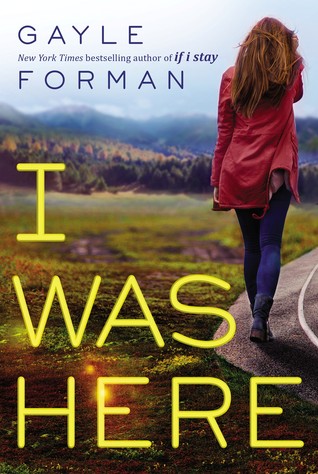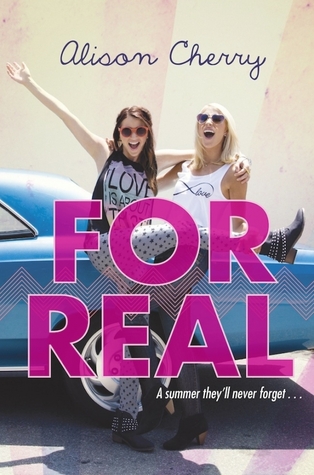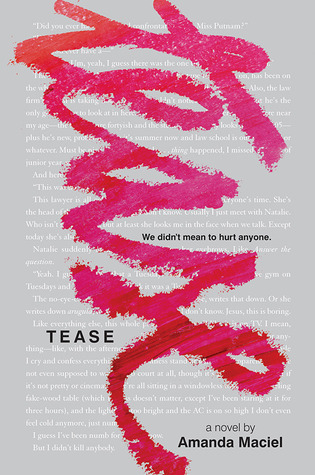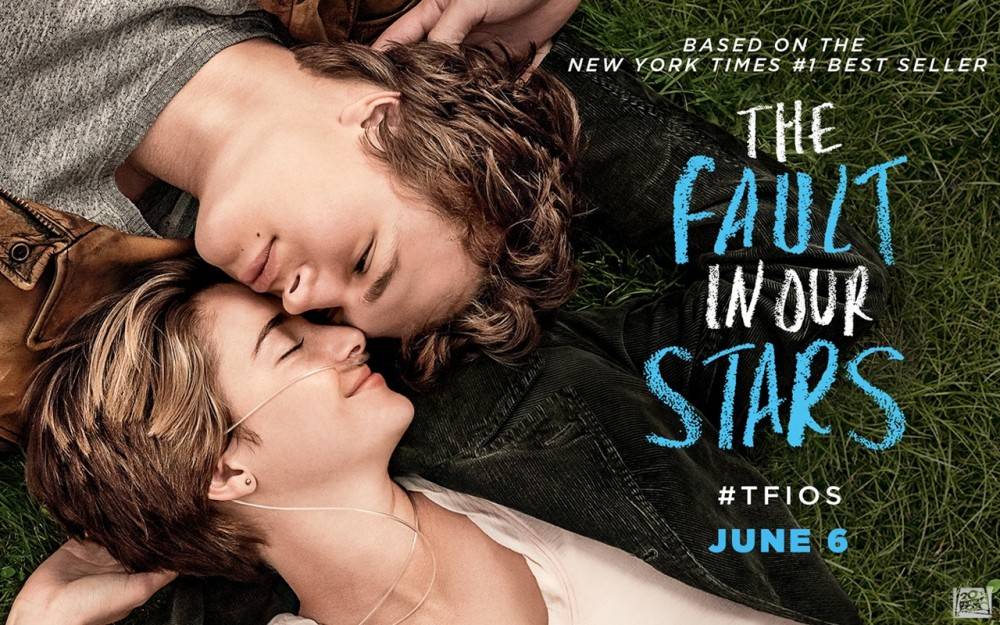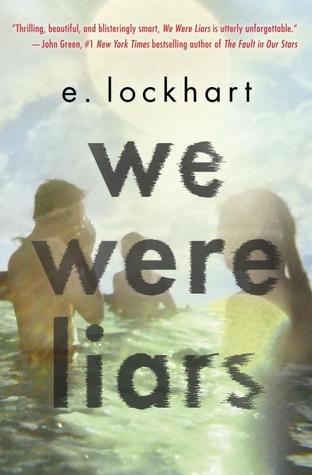Recently I was contacted by a publicist at Viking Penguin asking if I’d be willing to conduct an interview with one of their authors, who would be in my area soon. I’m not sure why they picked me, but I’m glad they did, because that author turned out to be Gayle Forman, author of international bestseller If I Stay, among other popular books. If I Stay was recently made into a movie, which means Gayle is now understandably busy, so I leapt at the opportunity to read her newest book, I Was Here, and then sit down to talk with her.
When you know you’re going to meet the author, there’s always a bit of nervousness that comes with reading their book. No author expects every reader to love their work, but so many of the authors I’ve met are such lovely people that I desperately want to be able to tell them I enjoy their stories.
With Gayle, I needn’t have worried. Not only was she kind and generous and wise in person, but I loved her book. Like most of her work, the subject matter is difficult, but it’s handled well, with care and honesty. It may actually be my favorite one of her books.
You can read my interview with Gayle on Young Adult Books Central, as well as enter to win a hardcover copy of I Was Here.
The Plot (from Goodreads):
When her best friend Meg drinks a bottle of industrial-strength cleaner alone in a motel room, Cody is understandably shocked and devastated. She and Meg shared everything—so how was there no warning? But when Cody travels to Meg’s college town to pack up the belongings left behind, she discovers that there’s a lot that Meg never told her. About her old roommates, the sort of people Cody never would have met in her dead-end small town in Washington. About Ben McAllister, the boy with a guitar and a sneer, who broke Meg’s heart. And about an encrypted computer file that Cody can’t open—until she does, and suddenly everything Cody thought she knew about her best friend’s death gets thrown into question.
I Was Here is Gayle Forman at her finest, a taut, emotional, and ultimately redemptive story about redefining the meaning of family and finding a way to move forward even in the face of unspeakable loss.
My Thoughts:
After reading Forman’s debut novel, If I Stay, and its sequel, Where She Went, I knew Forman was not afraid of tackling difficult subjects and handling them with care, which is why I was interested to see her approach to one of the most upsetting and relevant topics in our society today, teen suicide. Though the subject matter is far from pleasant, it only takes a glance at the headlines to confirm that this is a very real problem facing teens. It is my hope that I Was Here and books like it will help kids experiencing thoughts of suicide realize they are not alone, and raise awareness in the people who love them.
I Was Here follows Meg’s best friend, Cody, as she learns to navigate life without her other half following Meg’s suicide. We never meet Meg except through Cody’s memories, and while there is an element of mystery and suspense as Cody tries to make sense of why Meg would kill herself, I Was Here is ultimately a book about grief, and how to move on after unspeakable loss.
It feels strange to say I enjoyed a book centered on such a grim topic, but I did. I Was Here constantly walked the line between hopeful and tragic, light and dark, guilt and healing. Cody could be a difficult narrator at times, partially because she was in such a painful emotional state and partially because Cody was naturally standoffish, but the other characters provided balance and occasional humor, which I appreciated.
As in all of Forman’s books, there is a romantic element to I Was Here, but it took a backseat to Cody and Meg’s story. I enjoyed watching Cody and her reluctant love interest come together, and fans of subtle, slow-burn romance will appreciate how their story is woven into the main narrative of trying to put together the pieces Meg left behind.
The mystery – why Meg killed herself when, to Cody’s eyes, she had shown no indication that she was suicidal – takes both Cody and the reader down a disturbing rabbit hole that is both illuminating and horrifying. I was concerned at first that the book may attempt to distance itself from its subject matter, taking the easy way out, but I shouldn’t have worried. I Was Here faces its demons head-on, even when Cody would prefer to stay steeped in denial.
Even though the book winds up where most people probably assume it must, the journey Cody takes to get there is in turns heartbreaking and hopeful, and at the end, I came away satisfied. I’d recommend this book to fans of Forman’s previous books, as well as anyone interested in a raw, thoughtful story of depression, loss, grief, and healing.

